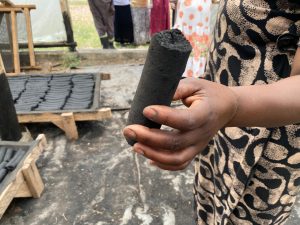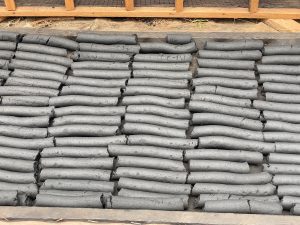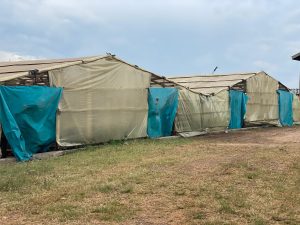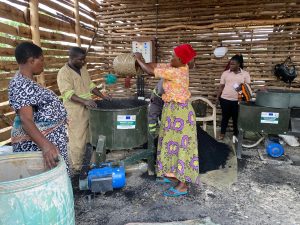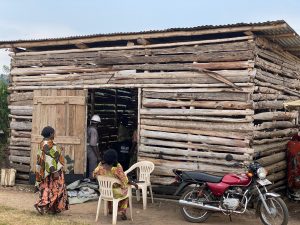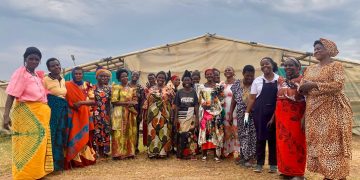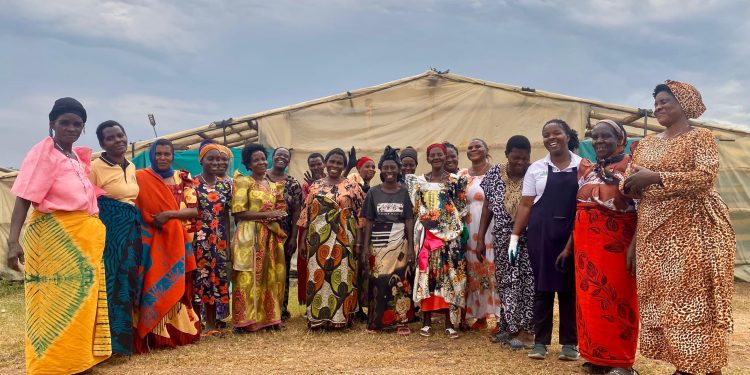On a busy morning in Mityana Town, the kitchen at Enro Hotel hums with the clatter of saucepans and the aroma of simmering sauces. Steam rises, cooks shout orders, and waiters rush in and out. But behind the scenes, something bigger than breakfast is unfolding.
Not long ago, the hotel relied almost entirely on firewood and charcoal—fuels that devoured not just their budget but also the forests around them.
“We used to spend Shs100,000 on a bag of charcoal every one and a half days,” recalls Kedrace Ahumuza, the hotel’s procurement officer. “It was expensive.”
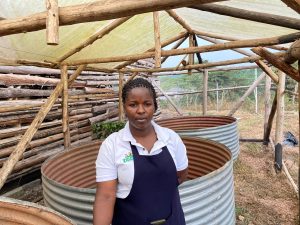
Today, the fires burn differently—steadier, cleaner—thanks to briquettes made from coffee husks, a solution pioneered by women under the International Women’s Coffee Alliance (IWCA) Uganda chapter. What was once discarded agricultural waste is now powering kitchens, cutting fuel costs by 20%, and offering women new income streams.
It’s a story where environmental conservation, economic opportunity, and women’s innovation intersect—proving that sometimes, the biggest revolutions start in the kitchen.
“If we had briquettes constantly,” Kedrace adds, “we wouldn’t need to fall back on charcoal at all.” Briquettes are compressed blocks of organic material, such as charcoal dust, sawdust, or agricultural waste, used as a sustainable fuel source.
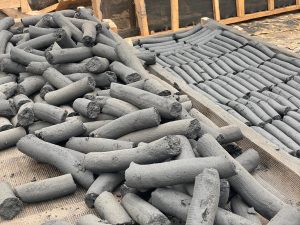
Uganda’s Charcoal Crisis
Uganda loses over 500,000 acres of forest every year—the equivalent of 43 football fields every hour. Over 80% of households depend on charcoal or firewood for cooking, fueling a crisis that threatens both the environment and household budgets.
“Charcoal is expensive,” says Dorothy Mugalu, a farmer and mobiliser of Zigoti Women and Youth in Coffee, a group of 30 women that runs the briquette project. “Women suffer walking long distances looking for firewood. Families spend so much money just to cook a meal.”
This dependence has left Uganda’s forest cover shrinking from 24% in the 1990s to less than 9% by 2015, according to the National Forestry Authority (NFA).
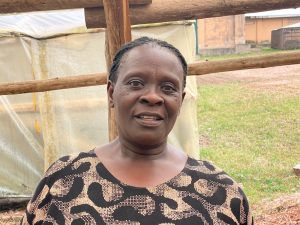
“Charcoal demand is one of the biggest drivers of deforestation, particularly in central and northern Uganda,” explains Aldon Walukamba, NFA Communications and Public Relations Manager. “We have restored forest cover to 12.8% today, but without affordable alternatives, the pressure on forests will continue.”
The Coffee Husk Solution
Uganda is one of Africa’s top coffee producers and the birthplace of Robusta coffee, grown by smallholder farmers nationwide. Each harvest yields not only beans for export but also mountains of coffee husks—often discarded or burned as waste.
Through IWCA’s initiative, this waste is being transformed into clean cooking fuel. “Our goal is simple: from farm to fuel,” says Teopista Nakkungu, IWCA Uganda’s Chief Coordinator. “We help women farmers turn coffee husks into clean, affordable briquettes. It’s cheaper than charcoal, saves trees, and creates new income streams.”
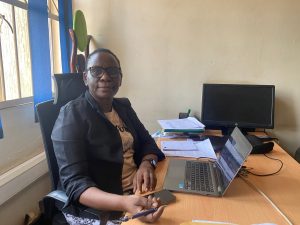
Zigoti Women’s Cooperative accesses coffee husks and workspace at Zigoti Coffee Works Limited, courtesy of proprietor Mrs Kato Rose Nakayinga.
“The process is straightforward,” explains Dorothy. It begins with collection — coffee husks are gathered from processing factories, mixing — husks are blended with maize cobs, molasses, cassava flour and clay soil, carbonisation — the mixture is burned in a controlled environment to remove moisture and moulding — the material is pressed into briquettes and sun-dried.
“The result burns longer, produces less smoke, and saves trees,” explains Sharon Nabongo, the project’s production supervisor.
Four briquette-making factories now operate in Mityana, Kiboga, Luwero, and Kyotera, each training women in machine operation, production, branding, and marketing.
“On average, women produce 200–300 briquettes per session,” says Rebecca Nalubega, IWCA’s Membership Officer. “A kilo sells for 1,500 to 2,000 shillings—half the cost of cooking the same meal with charcoal. Six briquettes can cook beans, posho, and tea and still have heat left for later.”

Savings, Trees, and Women Empowered
At Enro Hotel, the numbers speak volumes. “Two hundred kilos of briquettes last us a whole week,” says Kedrace, who oversees the project. “With charcoal, the same cost barely covers two days.”
Beyond savings, the initiative empowers women economically and socially. “I was a farmer before this,” says Dorothy. “Now I’ve learned marketing, machine operation, and business skills. We are still reinvesting, but soon this will bring steady income.”
Environmental benefits are clear, too. “Every kilo of briquettes we make means fewer trees cut down,” states Nabongo. “We believe this project will reduce deforestation.”
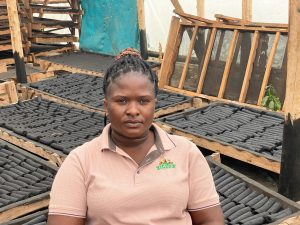
NFA’s Walukamba concurs: “A viable way to ease pressure on Uganda’s forests is through affordable, cleaner alternatives like biomass briquettes. If widely adopted, briquettes could cut household fuel costs by up to 30% and drastically reduce the need to fell trees for charcoal and firewood.”
Hotels, schools, and even poultry farmers are embracing the product because it burns longer, produces steady heat, and reduces kitchen smoke. Research backs this up: studies show that switching to briquettes and improved cookstoves can cut household fuel costs by 20–30% while significantly reducing deforestation.
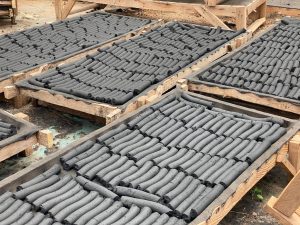
Meeting Uganda’s Energy Demand
But obstacles remain. Limited youth participation—since most members are older—poses a major challenge. “We produce about 80 kilos a day, but demand is much higher,” Nabongo admits. “We need more machines, more drying space, and better supply chains.”
Kedrace says the demand is still higher than the supply. “If they produced more, it would help us a lot because when we run out of briquettes, we have to use more charcoal and firewood.” Some families also hesitate to adopt new cooking methods.
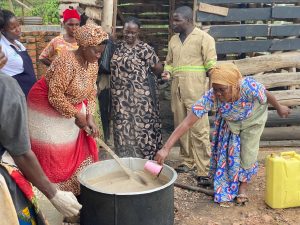
Seasonal coffee theft sometimes disrupts production, and profits remain slim as earnings are reinvested into equipment and training. “We’re buying more carbonizers, improving quality, and training more women,” Teopista says. “Real income will come when we scale up.”
The Science and Policy Dimensions
Meanwhile, scientists are exploring how coffee diversity could strengthen the clean energy supply chain.
“Some wild Robusta coffee varieties survive droughts and pests without human help,” says Mildred Julian Nakanwagi, a PhD researcher at Makerere University under the EU-funded ROBUST project. “By breeding climate-resilient varieties, we can ensure steady coffee production—and therefore, steady husk supply for briquettes—even during tough seasons.”
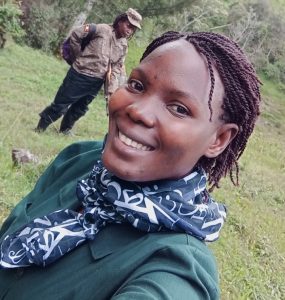
Preliminary findings from Nakanwagi’s research suggest that some native Robusta varieties produce larger cherries with thicker husks. “If strategically cultivated, these could provide a more reliable, year-round supply of biomass for briquette production,” she says. “This not only cuts household fuel costs but also eases pressure on forests by reducing reliance on charcoal and firewood.”
Policy experts agree that cleaner fuels like briquettes need government backing to grow. “We need schools, hospitals, and prisons to procure briquettes,” Walukamba from the Forestry Authority argues. “Tax incentives, urban fuel subsidies, and quality standards can help build demand while ensuring reliable supply.”
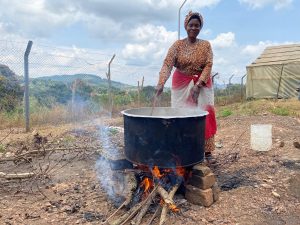
A Greener Future for Uganda
The project “Strengthening the Entrepreneurial Ecosystem for Clean Cooking”, co-financed by the European Union, the Netherlands Ministry of Foreign Affairs, and the Danish International Development Agency (DANIDA) and implemented by RVO, aims to reach 60,000 people with cleaner cooking alternatives by 2025, building on early success with 11,000 beneficiaries.
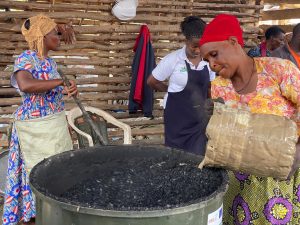
“We’re already eyeing the export market,” says Nabongo. “With Madam Kato’s support, we hope to produce enough for a full container and become one of the biggest suppliers locally and internationally.”
“My dream,” says Nalubega, “is for every woman here to have skills, income, and confidence—and for every household to cook without cutting a single tree.”
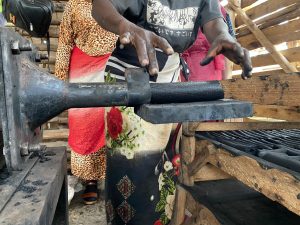
Teopista agrees. “Briquettes are not just fuel,” she says. “They are freedom—for women, for forests, and for our future.”
And as Uganda’s forests slowly recover, fueled not by firewood but by the waste of its most famous crop, it seems that the future may indeed be within reach—one coffee husk at a time.
